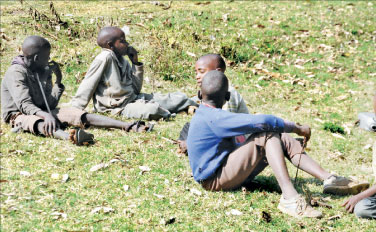×
The Standard e-Paper
Home To Bold Columnists
 |
| Some of the children who lost their parents in the oil tanker tragedy, five years ago. (Photo:Standard/File) |
By KARANJA NJOROGE
Sachangwan, Kenya: Joseph Muchiri, 15, appears weighed down by the heavy responsibilities bestowed on him.